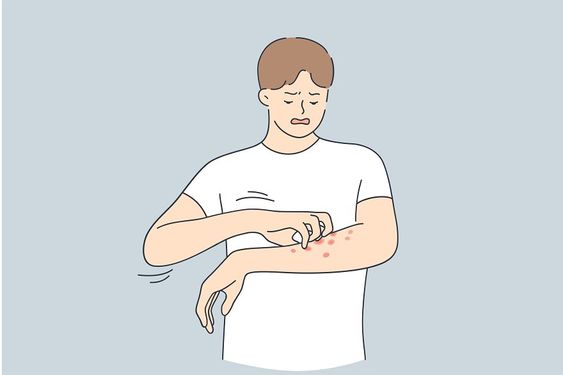
Alleviating the discomfort of atopic dermatitis, the prevalent form of eczema, can become a daily endeavor. This irritated and itchy skin condition often disrupts sleep, social interactions, and various daily activities.
If conventional home remedies like mild cleansing and consistent moisturizing fail to offer relief, your physician may suggest a prescribed treatment to apply topically. Which prescription cream proves most effective? Recent research has narrowed it down to a handful of standout options.
What is atopic dermatitis?
Atopic dermatitis is a persistent inflammatory skin condition, characterized by its tendency to affect areas such as the face, hands, feet, and skin creases like those behind the knees or elbows.The precise cause of atopic dermatitis remains unclear, though a combination of genetic factors, environmental triggers, and an immune system that’s overly responsive are believed to contribute to the inflammation that provokes itching. The act of scratching exacerbates this inflammation, leading to further irritation and itching.Continued scratching perpetuates a cycle of worsening symptoms. The skin may become lacerated, exude fluids, and form crusts, resulting in discomfort and pain.
Which skin treatments were more effective in the study?
In a 2023 study published online by The Journal of Allergy and Clinical Immunology, researchers assessed the effectiveness of various prescription topical treatments for atopic dermatitis. Their analysis encompassed over 200 randomized trials involving more than 43,000 individuals with atopic dermatitis, with an average age of 18. The study compared nearly 70 different prescription creams or ointments, collectively referred to as topical treatments, intended for application to affected areas of the skin.These treatments are classified into five categories. While their generic names may not be familiar to individuals with eczema, medical professionals are likely to be well-acquainted with them:
- topical corticosteroids,divided into seven classes ranging from the most to the least potent, decrease the release of an inflammatory chemical called phospholipase A2
- topical Janus kinase (JAK) inhibitorsinterrupt inflammatory signals as they enter cells
- topical PDE4 inhibitorsraise the production of a chemical called phosphodiesterase-4, or PDE4, and lower the body’s inflammatory response
- topical calcineurin inhibitorshelp suppress the production of chemical messengers that tell the body to ramp up its defenses
- other topical treatments,including antibiotics and prescription moisturizers.
The most effective medications for atopic dermatitis, according to the study, were:
- Calcineurin inhibitors: Pimecrolimus (Elidel) and tacrolimus (Protopic), both of which are calcineurin inhibitors, emerged as overall winners in the study. These medications work by suppressing inflammation and are particularly useful for sensitive areas such as the face and neck.
- Moderate-potency topical corticosteroids: Another category of highly effective medications identified in the study included moderate-potency topical corticosteroids. This group encompasses medications such as fluocinolone acetonide (Synalar cream 0.025%) and triamcinolone acetonide (Kenalog cream/ointment 0.1%). These corticosteroids help alleviate inflammation and itching associated with atopic dermatitis.
While the study involved a significant number of participants, it’s essential to recognize that what worked for them may not necessarily be the best option for you. Dr. Shi emphasizes that individuals can respond differently to the same treatment due to various factors such as age, specific affected areas on the skin, the severity of eczema, and potential side effects.The key takeaway is this: If your current treatment plan is effectively managing your eczema without causing any significant side effects, there’s no need for a change. However, if you’re not experiencing satisfactory results, it’s crucial to discuss this with your doctor or dermatologist. They can assess your situation and potentially recommend alternative prescription creams or ointments that may be more suitable for your needs. Always consult with a healthcare professional before making any adjustments to your treatment regimen.


I’m excited to uncover this wweb site. I wannt to to thank you for ones time just foor this wonerful read!!
I definitely loved every bit of it and i also havfe you saved as a
favorite to see new information in your blog. https://Odessaforum.biz.ua/
I’m excied to uncover this web site. I want to to thank you for ones time just for this wonderful read!!
I definitely loved every bit of it and i also have you saved ass
a favorite to see new information in your blog. https://Odessaforum.biz.ua/
Greetings! Very helpful advice on this article! It is the little changes that make the biggest changes. Thanks a lot for sharing!